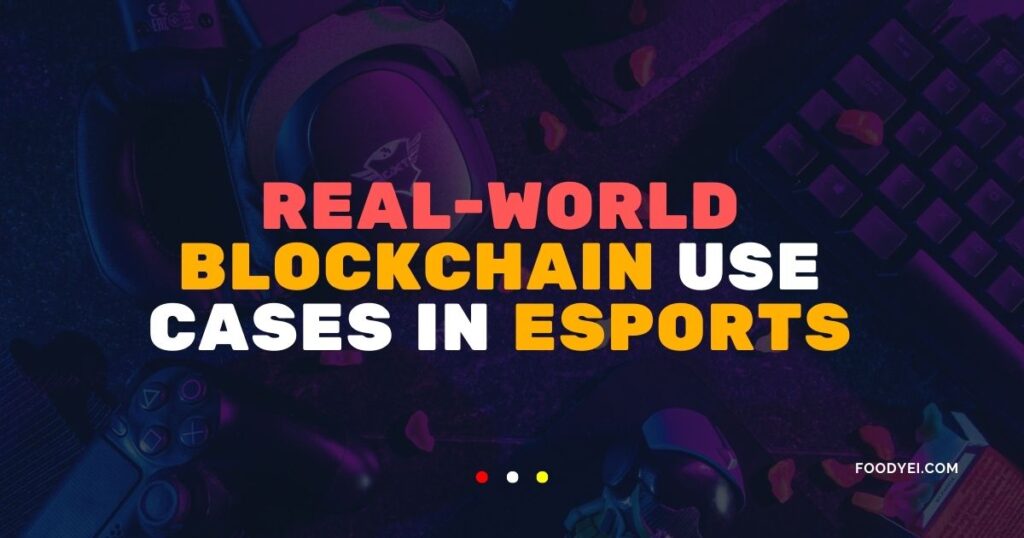Esports has seen massive growth recently, with global revenues projected to reach $39.7 billion by 2025 according to Newzoo. As the competitiveness and stakes rise, esports encounter issues like data security, transparency, and payment processing.
Enter blockchain – the distributed ledger technology behind cryptocurrencies. With its decentralized nature, blockchain in esports could provide solutions and drive innovation for multiple aspects of the esports ecosystem.
Blockchain Basics
A blockchain is a decentralized, distributed digital ledger powered by algorithms to record transactions or other data. The ledger is replicated across many computer systems instead of a central server. This gives blockchain unique attributes:
- Decentralization – No central control point. The blockchain acts as a consensus.
- Transparency – All participants can view the blockchain ledger and the data is verifiable.
- Security – Data cannot be altered due to cryptographic foundations. This prevents fraud.
- Automation – Transactions occur via code known as smart contracts, enabling automation.
Blockchain Solutions for Esports Challenges

While excitement for esports abounds, stakeholders face challenges regarding data, transactions, transparency, and efficiency. The innate capabilities of blockchain in esports make it a natural fit to address these pain points:
Data Security
Esports revolves around data like player stats, team strategies, user info, and more. Central databases can be vulnerable to attacks, leaks, and manipulation. Blockchain’s decentralized structure improves security and control. Data can be segmented so that only authorized entities access certain ledger segments.
Transaction Efficiency
Payments in esports like winnings payouts, team transfers, and sponsorship deals require fast, fraud-proof transactions. Cryptocurrency payments on blockchain allow near real-time, transparent money movement and can simplify e-commerce. Smart contracts automate complex multi-party deals.
Transparency
Maintaining the integrity of the competition is crucial for esports as a sport. But scandals around cheating, match-fixing, and gambling threaten legitimacy. Storing key data like player identities, ranks, and game logs on the blockchain in esports creates an immutable record for fairness and auditing.
Fan Engagement
Deepening the connection with fans is vital for esports longevity. Blockchain in esports enables new engagement models like tokenized voting rights, verifiable digital collectibles, and cryptocurrency rewards systems. Shared ledgers also facilitate multi-platform experiences.
Advertising and Sponsorships
The esports ad market is projected to reach $39 billion by 2025 per Insider Intelligence. However, metrics like ad impressions can be unreliable. Blockchain in esports brings accountability to digital advertising through validated delivery and engagement data. Brand partnerships can also utilize smart contract-based sponsorship packages.
Real-World Blockchain Use Cases in Esports

While much of blockchain in esports remains largely conceptual, real-world implementations are emerging:
Player and Team Tracking – Startups like ESP.bet maintain player rankings and histories with verified data like tournament results on blockchain. This showcases talent and performance to sponsors and fans.
Digital Collectibles – Platforms like Galaxy. eco work with game publishers to release limited NFTs of in-game assets and moments. These create new revenue streams while collectors trade securely.
Prediction Markets – Unikrn offers skill-based wagering on esports matches using blockchain and its UMode crypto token. This taps into the burgeoning esports betting industry transparently.
Fraud Prevention – Companies like DOJO Madness leverage blockchain to combat cheating and hacking issues. User data like hardware fingerprints make account stealing and illicit software tampering more difficult.
Fan Rewards – Reward systems powered by tokens and cryptocurrency provide fans with experiences like voting privileges, VIP access, and branded merchandise. Teams can deepen engagement and gain valuable data.
The Future of Blockchain in Esports

As blockchain solutions evolve, here are some potential areas of expanded impact in esports:
Decentralized Streaming – Direct streams between players and viewers supported by tokenized rewards and bandwidth sharing could challenge centralized platforms like Twitch.
In-Game Integrations – Natively integrating blockchain into game economies would enable cross-platform continuity, transferable assets, and new monetization models.
DeFi and Trading – Already common with collectibles, DeFi opportunities around tokenization of tournaments, teams, and players could create esports stock and derivatives markets.
Web 3.0 Experiences – Immersive social metaverse environments linked to live events, NFTs, and integrated cryptocurrency wallets provide the next iteration of fan engagement.
Community-Owned Teams – The decentralization ethos of blockchain could enable novel fan ownership models of esports teams through tokenization and collective decision-making.
Self-Regulating Governance – As corruption issues challenge esports’ integrity, blockchain-based transparency, accountability, and voting mechanisms may play a role in regulation.
Challenges to Adoption
Despite its promise, barriers stand in the way of blockchain’s widespread esports adoption:
- Immature Technology – Blockchain remains an emerging technology with issues around scalability, energy use, and real-world integration.
- Development Costs – transitioning from legacy systems to blockchain requires significant investment that may slow adoption, especially while unproven.
- Regulatory Uncertainty – Governments are still unraveling how to regulate blockchain, cryptocurrencies, and smart contracts, creating risk.
- User Adoption – Fans and gamers need education around blockchain benefits to foster acceptance and daily usage.
Conclusion:
As esports continues its march into the mainstream, expectations around fan engagement, fairness, and commercial success rise. Blockchain’s decentralized approach offers innovative solutions to problems like data transparency, transaction efficiency, and regulatory oversight.
Despite adoption hurdles, pioneering applications of blockchain technology in esports are already demonstrating tangible benefits while future possibilities span far. As the technology matures, blockchain promises to deepen the connection between fans and the franchises they love while optimizing the performance of the entire esports ecosystem.
FAQs:
How does blockchain help with data security in esports?
Blockchain’s decentralized structure enhances security since data is not centrally stored. Data can also be encrypted and access controlled via private keys. This protects sensitive info from hacking.
Can blockchain prevent cheating in esports?
By storing critical data like player stats, ranks, and competition logs on tamper-proof blockchain ledgers, cheating becomes much more difficult. Results can be publicly verified for tournament integrity.
What are NFTs in esports?
NFTs (non-fungible tokens) enable unique digital collectibles of in-game items, player autographs, video highlights, etc. Fans can buy, own, and trade these exclusive assets securely on a blockchain ledger.
How might blockchain change esports betting?
Blockchain brings transparency to esports betting through features like automated payouts via smart contracts. Prediction and gambling platforms based on blockchain also leverage transparency and security.
Does blockchain enable fan ownership of teams?
The decentralization principles behind blockchain support concepts like fractionalized ownership of teams through tokens. This gives fans limited decision rights and incentives to support their teams.
Can blockchain help advertisers in esports?
Blockchain creates accountable ad delivery data so impressions and engagement metrics cannot be falsified or misreported. This improves ROI for brands investing huge sums to advertise in esports.




